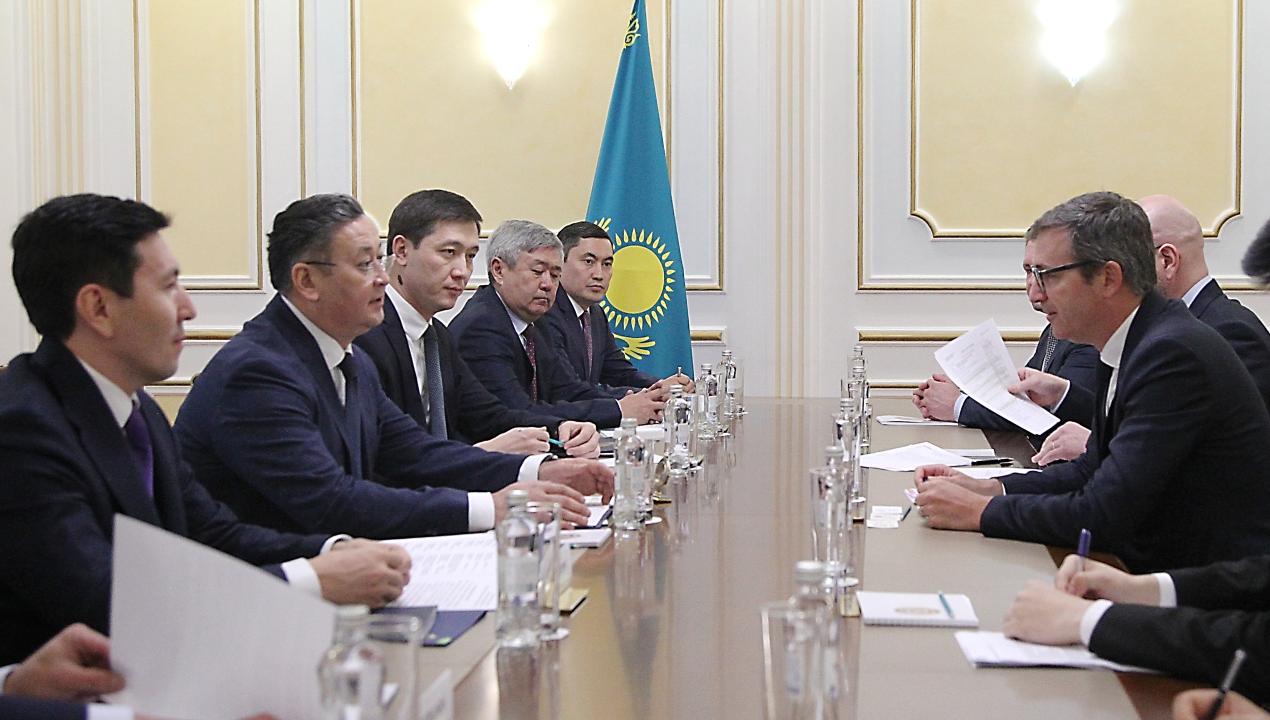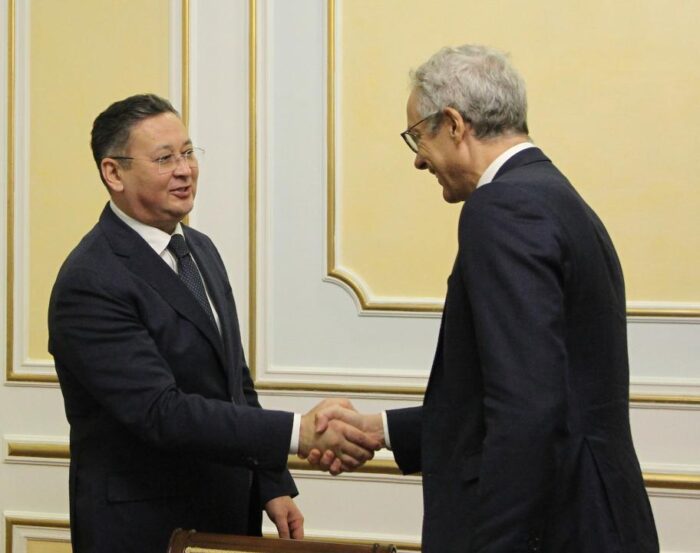ASTANA – The Kazakh Deputy Prime Minister and Foreign Minister Murat Nurtleu held discussions with representatives of foreign companies to advance joint investment projects in Kazakhstan, reported the ministry press service on Nov.17.

Kazakh Deputy Prime Minister and Foreign Minister Murat Nurtleu met with the French company Total Energies to explore future cooperation, emphasizing hybrid projects incorporating renewable energy sources. Photo credit: MFA’s press service.
In a meeting with officials from the French company Total Energies, the parties explored future cooperation, emphasizing hybrid projects incorporating renewable energy sources. Talks also included plans to construct a one-gigawatt wind power station in the Zhambyl Region.
Total Energies, a major global energy company with a 30-year presence in Kazakhstan, expressed interest in broadening investment collaboration with the country.
The minister acknowledged Kazakhstan’s commitment to raising renewable energy’s share in electricity production to 30% by 2030 during discussions with the head of the Saudi company ACWA Power. He commended the company’s intentions to undertake a one-gigawatt wind power station project in the Zhetisu Region. The Kazakh Ministry of Energy, Samruk Kazyna Sovereign Wealth Fund, and ACWA Power signed the agreement this March, with the construction of the wind power station to commence in 2025.

Murat Nurtleu, the Kazakh Deputy Prime Minister and Foreign Minister and Marco Arcelli, the Chief Executive Officer of ACWA Power. Photo credit: MFA’s press service.
ACWA Power envisions establishing long-term cooperation with Kazakhstan and expanding its investment initiatives in the country, focusing on water desalination and green hydrogen production projects.
In an interview with The Astana Times, ACWA Power’s CEO Marco Arcelli expressed optimism about Kazakhstan’s significant potential in the renewable energy sector. Diversification is not only crucial for Kazakhstan’s decarbonization goals, he said but is also driven by global trends, particularly the European Union’s (EU) Carbon Border Adjustment Mechanism (CBAM).
“If Kazakhstan wants to export to Europe, it will need to decarbonize the economy very quickly,” Arcelli said.
The mechanism, set to tax carbon-intensive imports, propels countries worldwide to streamline their decarbonization efforts.

